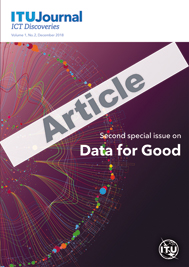 | In this paper, we characterize the notion of data sovereignty as a normative reference point for information and communication technology (ICT) governance. We explain why in our view, establishing data sovereignty means more than securing privacy, but also requires the availability of controllable means for sharing information with others. We argue that in the context of big data applications, dynamic consent mechanisms play a key role in steering information flows in accordance with the proposed normative reference point. We close by suggesting legal and governance aspects of implementing data sovereignty: explorations of data ownership notions, aiming at data literacy in education, encouraging transparency about data processing activities, and introducing representative data agents that channel data flows in accordance with individual preferences. |
|